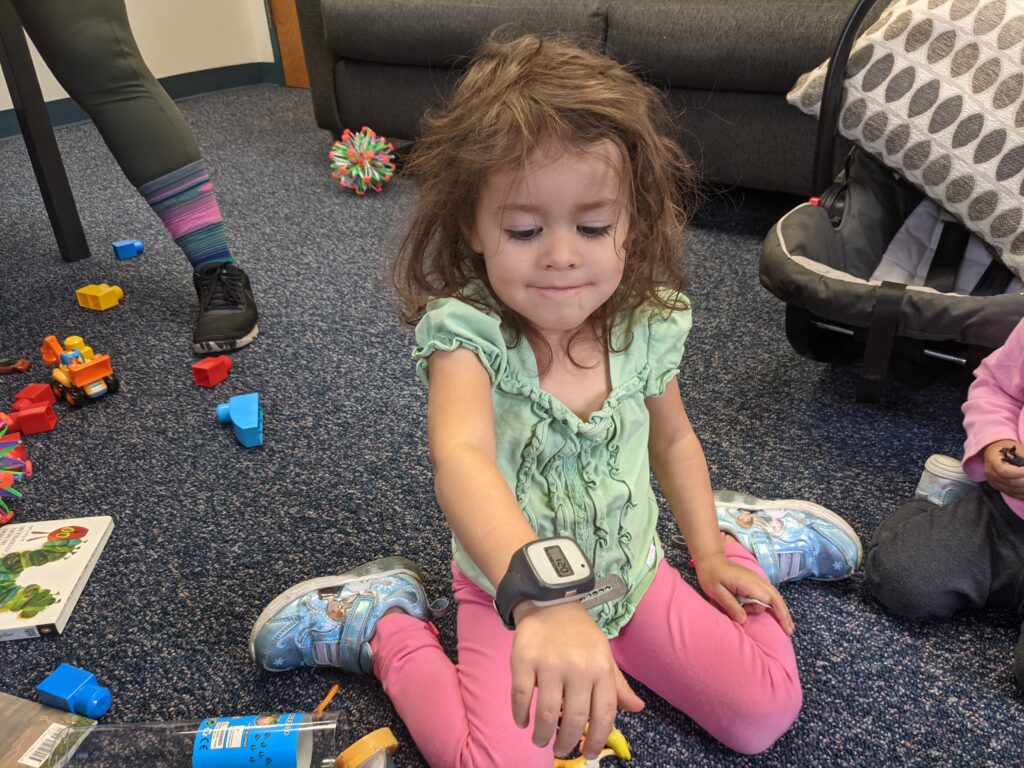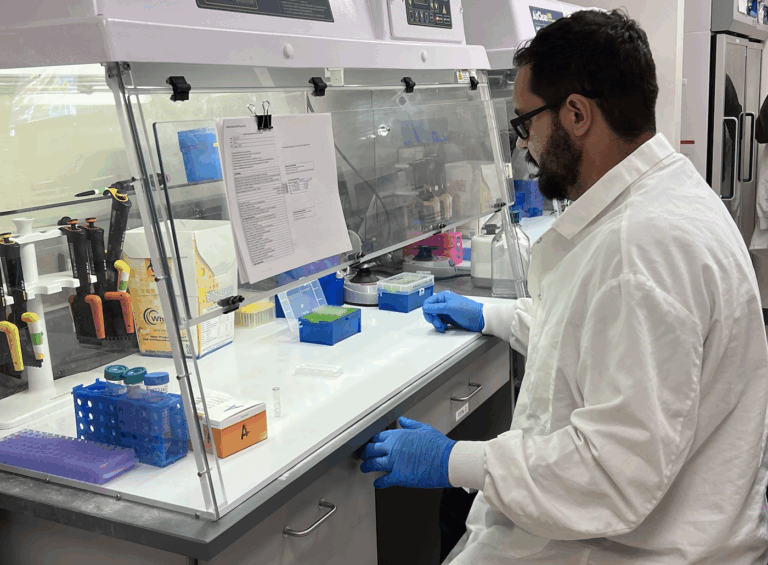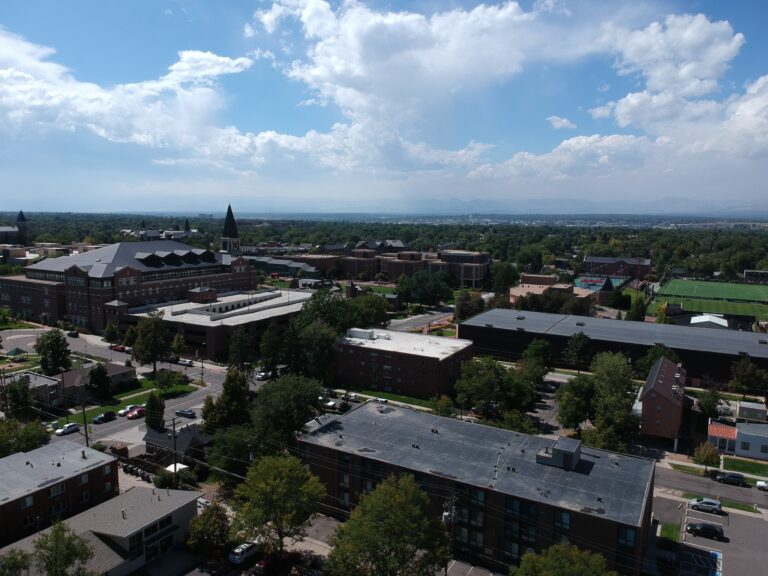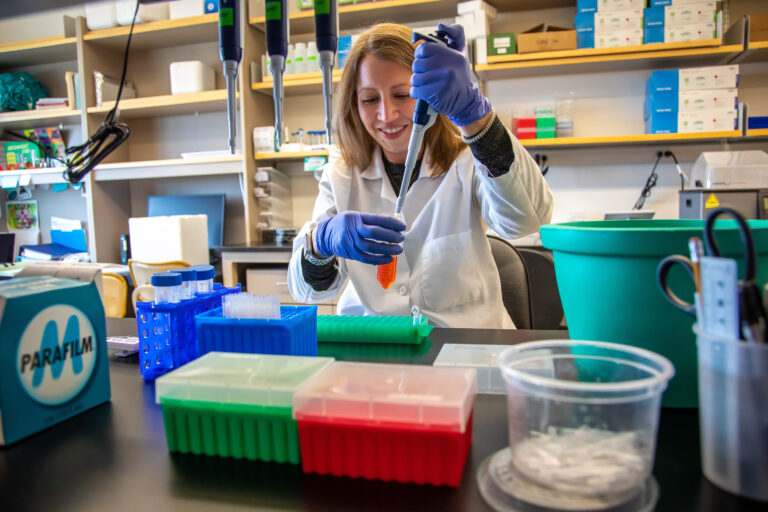DENVER — At the University of Denver, the Stress, Early Experiences, and Development (SEED) Research Institute is tackling big issues affecting small children. Founded in 2014 as the SEED Research Center, it became the SEED Research Institute in early 2024.
The institute initially launched “around this idea of early life experiences and development and understanding how family and larger community context impacts child health,” said Elysia Poggi Davis, distinguished university professor and co-director of the institute. “There was a group of us in the Department of Psychology who all had common interests in understanding how early life experiences influence health over the lifespan and identifying opportunities for resilience and support for families.”
Davis was one of the founders, along with DU psychology faculty members Sarah Watamura, Pilyoung Kim and Julia Dmitrieva. There are now 10 faculty members working with the institute.
“We’ve grown quite a bit, so we now have additional members and affiliates, as well as quite a few postdocs, Ph.D. students and undergraduate students,” Davis said.
mThe institute’s studies focus on mothers and their kids from pregnancy through the first 18 months of life. “This is a group of scholars who are really broadly interested in promoting intergenerational health, well-being and resilience by trying to conduct relevant research and collaborate with community partners with the goal of both promoting parent-child health and providing important training opportunities for students,” Davis said.

The institute has partnered with a number of outside medical organizations on numerous projects, including Denver Health and the University of Colorado Anschutz Medical Campus.
“We believe that, by collaborating, we can increase our success in funding and engaging in more, higher-impact research,” Davis said.
Davis frequently has partnered on projects with co-director Jenalee Doom, who joined the institute in 2019 and became co-director with Davis in 2024.
“Our research is really trying to address the hypothesis that, by providing support and promoting maternal health during pregnancy, we have a really important opportunity to improve the health of both the mother and the offspring,” said Davis, describing pregnancy as “a sensitive window” for the long-term outcomes of children.
To that end, Davis co-authored a study on depression and pregnancy that was published in JAMA Psychiatry in 2023 that was conducted in collaboration with researchers from Denver Health and the CU Anschutz Medical Campus.
“We recruited pregnant people who were screened based on the hospital standard screening as having high depression symptoms, and then we enrolled them into a clinical trial, which was a form of psychotherapy for reducing depression,” Davis said. “What we found was a really dramatic decrease in depression in the moms. In our treatment group, the rates of major depressive disorder went down fivefold. We saw really robust decreases in symptoms.”
Another study published in eClinicalMedicine in 2024 co-authored by Davis investigated the impact of depression on the length of gestation.
“Moms whose depression was reduced in pregnancy are more likely to deliver their babies full-term,” Davis said. “Being born early is associated with lots of health complications for the baby, so that’s one finding that I’m personally incredibly excited about, because of this idea that you both improve mom’s health and the baby’s outcomes as well.”
Davis and Doom are continuing to work in the area of depression and pregnancy. “What we’re doing now is following the babies, because our idea is that, by intervening during pregnancy, we not only will improve mom’s health, but the baby’s as well,” Davis said.
Davis also highlighted research conducted by Angela Narayan, associate professor at DU. “Her work is with families in pregnancy also, and really looking at how the relationship between the parents during pregnancy impacts both the mental health of the mom and attachment,” Davis said. “A lot of her work looks at how parents’ own childhood experiences, especially related to experiences of trauma and also experiences that they had in their own childhood that might promote resiliency, impact how they transition to parenthood themselves.”
The institute is not limited to research; it also develops programs to improve outcomes for mothers and their children. Galena Rhoades helped Davis launch MotherWise at Denver Health to provide support for pregnant women and new mothers. “Anyone who is receiving prenatal care can go to these programs and receive tools to help them navigate this challenging period and support their own mental health,” Davis said.
Jennifer Hyer, an obstetrician-gynecologist at Denver Health, also highlighted La Luz, a group-therapy program developed in conjunction with the SEED Research Institute that is designed to reduce postpartum depression.
“We say depression is the No. 1 complication of pregnancy,” Hyer said. “Often, symptoms of depression can persist with the new baby and in the transitional period, so I think any resources that we can offer moms and families that would potentially help with postpartum depression are really valuable.”
The collaboration with the SEED Research Institute has been fruitful for Denver Health’s patients, in Hyer’s eyes. “I love working with this team because I love being able to offer these programs to patients,” she said. “Not only does the content benefit them, but also it gives them a sense of camaraderie and inclusion. I think it’s really fantastic that we have the opportunity to allow patients to participate.”
Beyond research and programs, education is the third key pillar of the institute’s mission. “One of our really important goals is to provide opportunities and support training of students who are going to educate the next generation of scientists,” Davis said. The institute aims to “help attain grant funding for students, help them make connections and collaborations, and support their own interdisciplinary work.”






